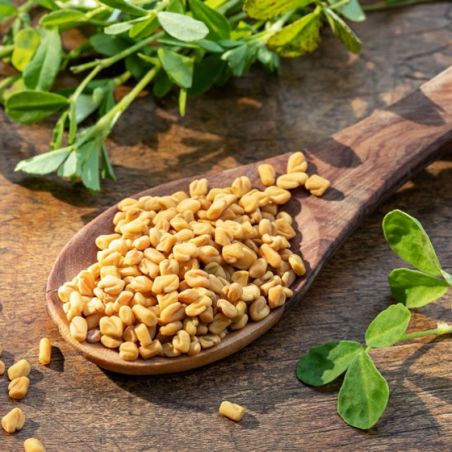
Getting Back in Shape After Childbirth: Tips for a Healthy Postpartum
SUMMARY
Postpartum: what is it?
The main symptoms of postpartum
How to best manage your postpartum period
A very common phenomenon that is ignored in the postpartum period: significant hair loss
Introduction
Welcoming a baby into the family is a time of both joy and upheaval, especially when breastfeeding comes into play. However, once the dust settles after delivery, many moms find themselves juggling multiple responsibilities, new routines, and significant physiological changes.
POSTPARTUM: WHAT IS IT?

The postpartum period , also called the puerperium, refers to the period immediately following childbirth , usually the six weeks following the birth of the child. It is an important and complex phase of a woman's life that involves significant physiological, emotional, physical, and social changes.
THE MAIN POSTPARTUM SYMPTOMS

Symptoms vary from woman to woman depending on factors such as pregnancy, childbirth, mental health history, and social support. Here are the main symptoms that affect the majority of women during postpartum:
Fatigue and exhaustion
Sleepless nights from baby care can lead to intense fatigue. This can be exacerbated by hormonal readjustments and the stress of new parenthood.
Postpartum bleeding
Vaginal bleeding , called lochia , is normal after childbirth and can last for several weeks. It is usually heavier at first and gradually diminishes.
Pain and discomfort
Abdominal and pelvic pain are common, especially if you have had a cesarean section or perineal tears during childbirth. Uterine contractions to return to normal size can also be painful.
Fluctuating Hormones
Hormone levels, including estrogen and progesterone, undergo significant fluctuations after childbirth. These fluctuations can contribute to mood swings, anxiety, and feelings of euphoria or sadness.
Baby blues
Many women experience a period of baby blues , usually in the first few days after giving birth. This manifests itself in changing emotions, frequent crying, irritability and emotional instability.
Postpartum depression
Postpartum depression is a more serious disorder that can occur in the weeks or months after delivery. It can include symptoms such as profound sadness , loss of interest in activities, persistent fatigue , irritability, and sleep disturbances .
Postpartum anxiety
Postpartum anxiety is characterized by excessive concern about the health or safety of the baby, panic attacks, feelings of constant worry, and agitation.
Sleep disorders
New parents often face sleep disturbances due to the baby's frequent needs. This can lead to fatigue and irritability.
Body changes
Postpartum comes with significant physical changes , including weight loss, body shape changes, and breast changes. These changes can impact self-confidence.
Difficulties in the relationship
Adjusting to parenthood can sometimes create strain on the relationship between partners due to lack of sleep and new responsibilities.
HOW TO BEST MANAGE YOUR POSTPARTUM PERIOD?

Postpartum can be a time of challenges, adjustments, and strong emotions for many new moms. Here are some tips for navigating postpartum in a positive and supportive way:
Ask for help:
Don't hesitate to ask for help from your spouse, family, or close friends. They can support you by taking care of some household chores, allowing you to rest , or taking care of the baby to give you a break.
Accept bodily changes:
Your body has undergone significant changes during pregnancy and childbirth. Be kind to yourself and remember that recovery can take time. Don’t put pressure on yourself to get back to your pre-pregnancy fitness level right away.
Take care of your mental health:
Monitor your emotional well-being and don’t underestimate the importance of mental health . If you are experiencing symptoms of postpartum depression, anxiety, or baby blues, talk to a healthcare professional. Therapy and emotional support can be very beneficial.
Eat well and stay hydrated:
Eating a balanced diet helps with postpartum recovery and your energy. Make sure you eat nutritious meals and stay hydrated . If you are breastfeeding, your diet can also impact the quality of your breast milk.
Take time for yourself:
It's important to take time for yourself to relax and recharge. Whether it's a short walk, a relaxing bath, or a few minutes of meditation, give yourself some quiet time.
Establish a routine:
Routines can be comforting for both you and your baby. Try to establish a regular schedule for meals, naps, and sleep. This can help bring stability to your daily life.
Accept imperfection:
No one is perfect , and motherhood is full of ups and downs. It's okay to make mistakes and face challenges. Learn to embrace imperfection and do your best.
A VERY COMMON PHENOMENON THAT WE IGNORE IN THE POSTPARTUM PERIOD: SIGNIFICANT HAIR LOSS

Postpartum hair loss is a common occurrence that occurs in many women after giving birth. It is mainly due to hormonal fluctuations. During pregnancy, the body produces high levels of hormones , including estrogen , which can make hair thicker and shinier.
After giving birth, these hormone levels drop rapidly , which can lead to hair loss. Additionally, the physical stress of pregnancy and childbirth can also contribute to hair loss.
Here are some solutions to deal with this problem:
Balanced diet :
Maintain a balanced diet rich in essential hair nutrients, such as protein, vitamins and minerals.
Avoid tight hairstyles :
Avoid pulling or excessively styling your hair, which may worsen hair loss.
Using hair oils:
Some hair oils, such as coconut oil , argan oil , or castor oil , are known to nourish the hair and scalp. You can apply them to your hair, leave it on for a while, and then wash it off.
Herbal infusions:
Some herbs and plants, such as chamomile and horsetail , are known for their beneficial properties for hair. You can prepare infusions of these plants and use them as a hair rinse.
Scalp massage:
Gently massaging your scalp can stimulate blood circulation and promote hair growth. You can do this with your fingers or by using a light hair oil.
Limit the use of chemicals:
Reduce the use of hair products that contain harsh chemicals such as hair dyes and chemical treatments. Opt for natural and gentle hair products.
WHAT FOODS SHOULD YOU EAT DURING POSTPARTUM?

Eating well is essential to promote healing, breastfeeding, and energy. Here are some tips on what to eat during postpartum:
Nutrient-rich foods:
Proteins:
Protein is essential for breast milk recovery and production. Lean protein sources, such as lean meat, fish, eggs, legumes (beans, lentils), tofu, and dairy products, are important.
Whole grains:
Whole grains, such as oats, quinoa, brown rice and whole grain bread, are a slow-release energy source that can help keep you energized throughout the day.
Foods rich in iron:
Blood loss during childbirth can cause low iron levels. Iron-rich foods, such as spinach, lean beef, lentils, and dried apricots, are important to prevent anemia.
Hydration:
Make sure you drink enough water to avoid dehydration, especially if you are breastfeeding. Water is essential for breast milk production.
Healthy snacks:
Have healthy snacks on hand to satisfy those cravings. Nuts, seeds, Greek yogurt, carrots, and hummus are good options.
Anti-inflammatory foods:
Certain foods, such as salmon, berries, nuts, and spinach, have anti-inflammatory properties that can help reduce postpartum inflammation.
Avoid processed foods:
Limit consumption of processed foods, high in added sugars, saturated fats and additives.
Supplements:
It's important to consult a doctor, such as a nutritionist, to discuss your specific postpartum nutritional needs, as they can vary from woman to woman depending on factors such as breastfeeding, cesarean or vaginal birth, and other medical considerations.
CONCLUSION
The postpartum period is a phase of life that requires special attention , both in terms of physical recovery and mental well-being . The article discussed essential tips to help new mothers regain their fitness and vitality after giving birth.
It’s important to remember that every woman is unique , and fitness needs can vary. However, by relying on basic principles such as gentle, progressive exercise, eating a balanced diet, seeking support, managing stress, and communicating openly with healthcare professionals, new moms can get started on the path to fitness and wellness .













Leave a comment
This site is protected by hCaptcha and the hCaptcha Privacy Policy and Terms of Service apply.